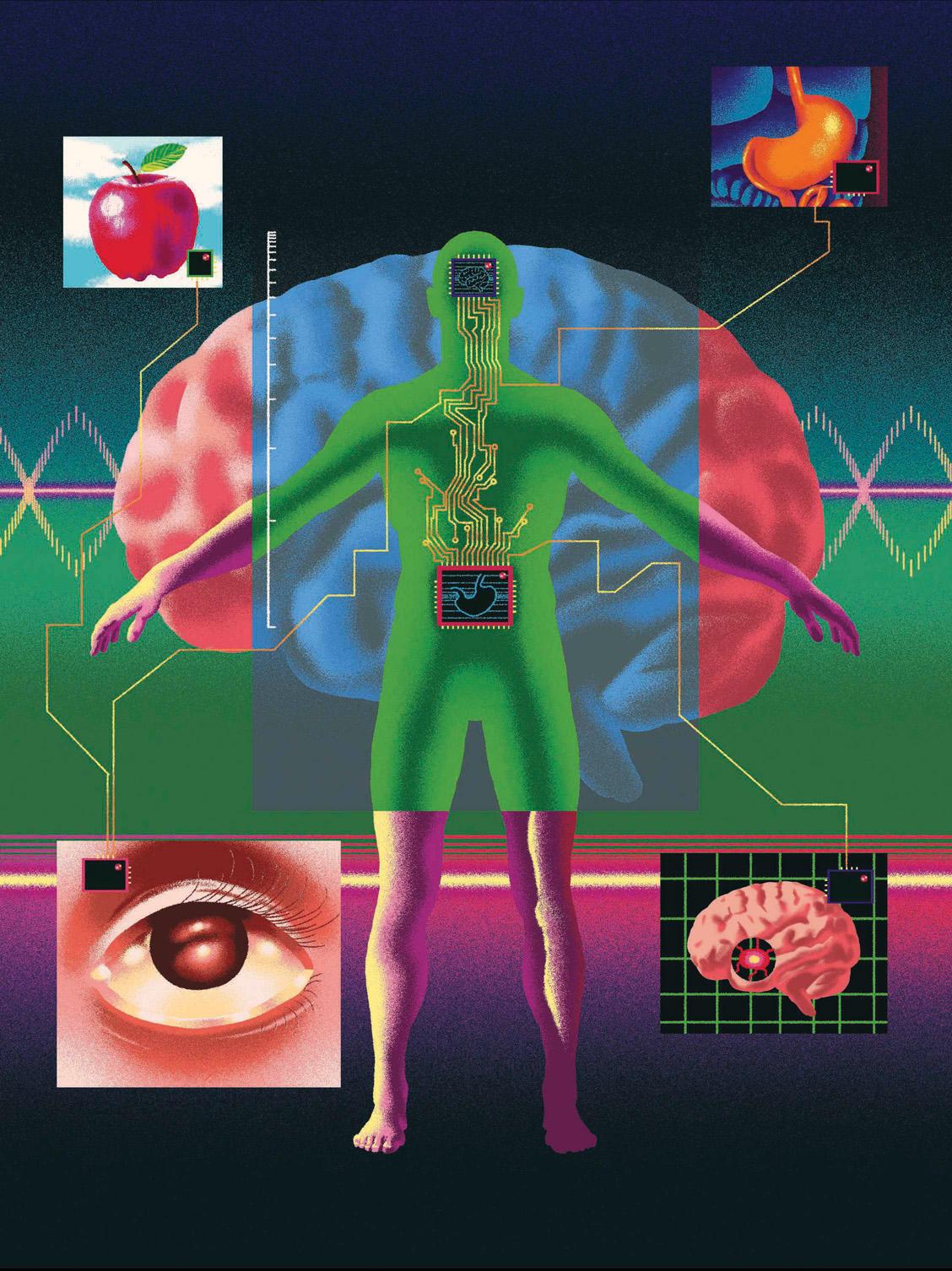試す 金 - 無料
The map that may lead to a new obesity treatment
BBC Science Focus
|March 2025
A better understanding of the pathways in the human hypothalamus has huge possibilities for medicine

I have been working in the field of obesity for nearly 30 years, largely trying to understand bodyweight regulation through genetics. And what I know is that the genetics of bodyweight is, by definition, the genetics of how the brain influences our appetite.
Broadly speaking, your brain needs to know two things to influence appetite. First, it needs to know how much fat you’re carrying (as your long-term energy source, it’s directly related to how long you would last without food). Second, it needs to know how much you’re eating and have just eaten (these short-term energy signals are going to come from your gut).
These long-term fat and short-term gut signals come in the form of hormones secreted into your bloodstream. When they reach your brain, it senses them and influences your next interaction with a refrigerator, restaurant menu or supermarket.
The key area of the brain that acts as a ‘fuel sensor’ for these signals is the hypothalamus. Roughly the size of your thumbnail and the shape of an almond, it sits at the base of the middle of your brain.
このストーリーは、BBC Science Focus の March 2025 版からのものです。
Magzter GOLD を購読すると、厳選された何千ものプレミアム記事や、10,000 以上の雑誌や新聞にアクセスできます。
すでに購読者ですか? サインイン
BBC Science Focus からのその他のストーリー

BBC Science Focus
World's biggest cobweb is home to 100,000 spiders
Spiders don't normally create such large colonies, so there's no need to worry about finding one in your basement
1 min
February 2026

BBC Science Focus
A dementia vaccine could be gamechanging – and available already
Getting vaccinated against shingles could protect you from getting dementia, or slow the progression of the disease
1 mins
February 2026

BBC Science Focus
DATA IN SPACE
An unusual spacecraft reached orbit in November 2025, one that might herald the dawn of a new era.
7 mins
February 2026

BBC Science Focus
Climate change is already shrinking your salary
No matter where you live, a new study has found warmer temperatures are picking your pocket
4 mins
February 2026

BBC Science Focus
A MENTAL HEALTH GLOW-UP
Forget fine lines. Could Botox give you an unexpected mental health tweakment?
3 mins
February 2026
BBC Science Focus
Most people with high cholesterol gene don't know they have it
Standard testing struggles to detect the condition
1 mins
February 2026

BBC Science Focus
HOW CAN I BOOST MY IQ?
If you're serious about getting smarter, it's time to ditch the brain-training apps
4 mins
February 2026

BBC Science Focus
Humans are absolutely terrible at reading dogs' emotions
Think you can tell how our furry friends are feeling? Think again
1 mins
February 2026

BBC Science Focus
HOW TO TEACH AI RIGHT FROM WRONG
If we want to get good responses from AI, we may need to see what it does when we ask it to be evil
3 mins
February 2026

BBC Science Focus
What Australia's social media ban could really mean for under-16s
Many people think social media is bad for our kids. Australia is trying to prove it
5 mins
February 2026
Listen
Translate
Change font size

